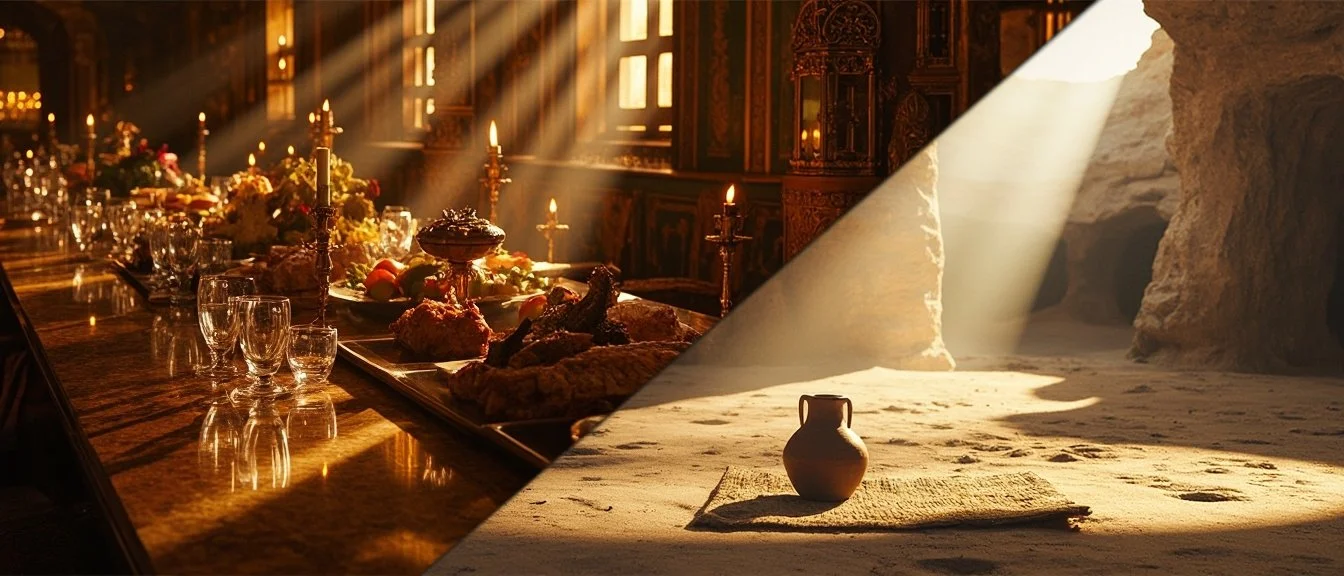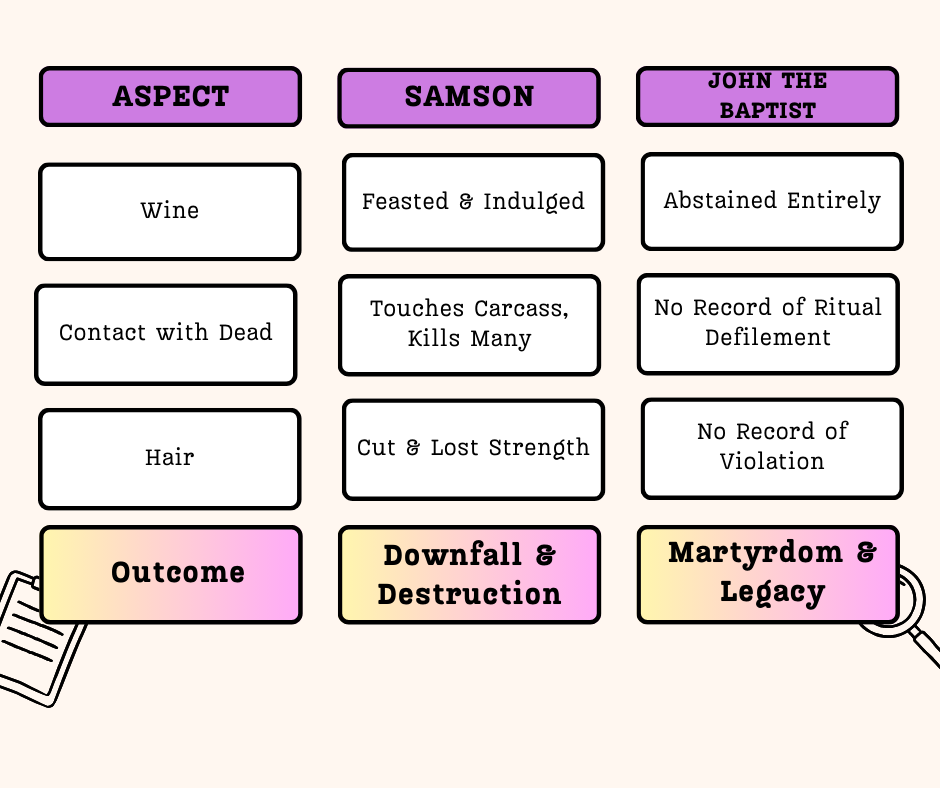He Came Out of the Wilderness: The Strange Power of John the Baptist
Introduction
He wandered out of the wilderness like a wraith.
Dressed in camel hair.
Eating locusts.
Speaking fire.
He refused the amenities and prestige of his priestly lineage, choosing instead the barren silence of the desert over the structured holiness of the Temple.
Who was Yahya ha-Mitzravitzer—John the Baptist—this desert prophet whom Jesus praised, was baptized by, and even learned a method of prayer from?
He appears almost out of nowhere in the Gospels, and yet his presence is electric. He baptizes Jesus (Matthew 3:13–17), teaches his disciples how to pray (Luke 11:1), and is described by Jesus himself as “more than a prophet” and “the greatest born among women” (Matthew 11:11).
But why?
John doesn’t perform miracles.
He doesn’t write epistles or found churches.
He doesn’t lead armies or conquer cities.
What he does is even rarer:
He stays faithful. From beginning to end.
And that makes him one of the most important—and often overlooked—figures in the Abrahamic tradition.
While others waver, fall, or fade, John delivers.
In this post, we’ll explore the ancient vow of the Nazirite, the tragic fall of Samson, and how John the Baptist fulfilled what others could not—not by strength, but by obedience.
1. The Nazirite Vow: A Life Set Apart
The Nazirite vow (Numbers 6:1–21) was a unique spiritual discipline in ancient Israel. Those who took it vowed to:
Abstain from wine and strong drink – Symbolizing clarity and self-denial.
Avoid contact with the dead – Maintaining ritual and spiritual purity.
Never cut their hair – A visible symbol of their consecration.
The vow was usually temporary. But for some—like Samson and John the Baptist—it was a lifelong calling.
2. Samson: A Calling Compromised
Samson was a Nazirite from birth, announced by an angel to his mother (Judges 13:5). He was gifted with supernatural strength to begin delivering Israel from its enemies.
But he slowly broke each element of the vow.
🍷 Compromise 1: Wine and Indulgence
Samson is found in vineyards (Judges 14:5), and hosts a wedding feast (mishteh) implying wine and revelry (Judges 14:10). While the text is subtle, his life shows a pattern of indulgence.
⚰️ Compromise 2: Contact with the Dead
He scoops honey from the carcass of a lion (Judges 14:8–9), then later slays 1,000 men with the jawbone of a donkey (Judges 15:15). Death is a constant companion—and never treated as sacred.
✂️ Compromise 3: Cutting the Hair
In his final fall, Samson gives up the secret of his strength—his uncut hair. Delilah shaves it, and “the Lord had left him” (Judges 16:20). His strength didn’t leave in one moment—it had been leaking for a long time.
Samson’s tragedy wasn’t sudden—it was the slow unraveling of a sacred vow through everyday compromise.
3. John the Baptist: A Life Fulfilled
John, too, was set apart from the womb:
“He will drink no wine or strong drink, and he will be filled with the Holy Spirit, even from his mother’s womb.”
— Luke 1:15
He lived in the desert, preached repentance, baptized multitudes, and prepared the way for the Messiah. His life was simple, disciplined, and powerful:
No palace. No priestly robes. No compromises.
He didn’t seek approval—he sought alignment with God.
His strength was his consecration.
Where Samson broke all three parts of the vow, John embodied its spirit entirely.
4. Lessons from Two Lives Set Apart
Samson had the calling—but broke the vow.
John had the calling—and lived it to the end.
5. Interfaith Reflection
Judaism: The Nazirite vow (Nazir) symbolizes spiritual intensity. Samson is a cautionary tale of squandered strength; John mirrors prophetic holiness.
Christianity: John the Baptist is central—herald of the Messiah, the “voice crying in the wilderness.” His faithfulness is unparalleled.
Islam: Known as Yahya, John is a prophet of purity, wisdom, and righteousness (Qur’an 19:12–15), mirroring his Christian and Jewish depictions as a consecrated soul.
Conclusion: The Collapse That Begins in Small Cracks
Samson’s fall didn’t come from one act—it came from many small compromises. This speaks directly to those of us in the 25–35 age range.
In this season of ambition, independence, and constant pressure, spiritual erosion doesn’t always come from rebellion—it comes from neglect.
John reminds us: Holiness isn’t loud. But it’s consistent.
So the question is...
What was John the Baptist doing in the wilderness?
Join us in the next article as we explore this.
Caution: The truth may change the way you see things.




